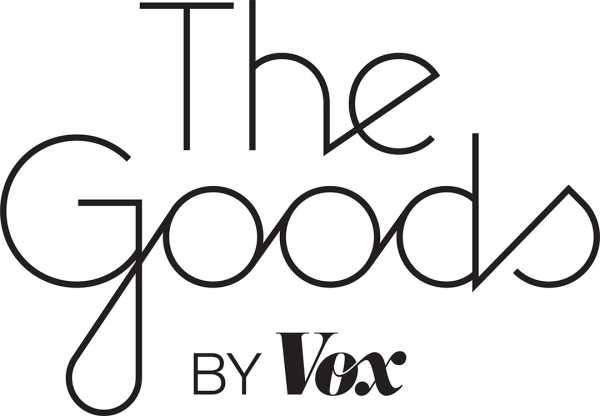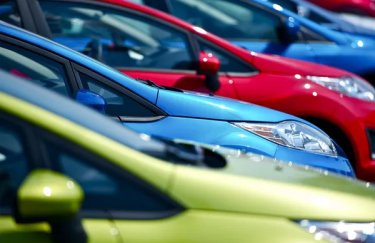
This story is part of a group of stories called

Elon Musk recently told Tesla executives he has a “super bad feeling” about the economy, so he wants to pause hiring and cut the company’s workforce. This is perhaps not the best way to run a business, but it is indicative of the current mood — a lot of people have a sense that something’s just off in the economy, or it’s about to be. There’s this nagging sentiment that we’re in a precarious spot, that there’s some economic boogeyman lurking just around the corner.
This sense of dread is so pervasive that it might surprise you to hear that many aspects of the US economy are generally in good shape right now. The unemployment rate is low, and the labor market is strong. Job openings are at near-record levels, and many workers who want to find something better are doing so. Household and corporate balance sheets are strong. Business profit margins are coming down some but are not disastrous. The stock market is faltering, but the worst troubles seem to be concentrated to the high-flying tech sector that was bound to cool off a bit. Stock market investors are still much wealthier than they were five, 10 years ago.
The elephant in the room is, of course, inflation, which is high and, for most consumers, just incredibly annoying. Rising prices are cutting into wage gains for workers. The average price of gas nationally was $4.91 as of June 7, climbing just as many Americans get ready to hit the road for the summer.
Sign up for The Big Squeeze newsletter
Twice a month, Emily Stewart’s column exposes the ways we’re all being squeezed under capitalism. Sign up here.
“Everything else is going swimmingly, but the inflation is painfully high. People can’t get around that, psychologically,” said Mark Zandi, chief economist at Moody’s Analytics. Add to inflation over two years of a pandemic, war in Ukraine, mass shootings, and political dysfunction, and it makes it hard to say you feel good about anything, including the economy. “It’s just a noxious brew that’s come together and is weighing very heavily on the collective psyche at this point.”
The Federal Reserve is tightening monetary policy to try to combat inflation, which could push the economy into a recession. Regardless, the breakneck pace of the recovery from the pandemic recession is slowing down.
The economy isn’t terrible, but a combination of factors make it feel like it is — and that it’s only going to get worse, even though that’s not at all a foregone conclusion.
Inflation, not fun
Inflation in the US is at levels the country hasn’t seen in decades, and people, frankly, hate it. A recent poll from FiveThirtyEight and Ipsos found that over half of the country says inflation is the most important issue facing the country, well ahead of issues such as political extremism, gun violence, and climate change. Pew found that 70 percent of Americans say inflation is a very big problem, with no other issue coming very close.
“It’s just a noxious brew that’s come together”
Inflation can be really painful for consumers, especially on items such as food and gas that they can’t really skip buying. It’s also always staring them in the face in a way that other facets of the economy are not, at least not so obviously.
If you have gotten a raise over the past year — and many people have — it was likely a one-time thing. “It’s not like every week your boss is like, ‘Hey, we gave you another raise.’ With inflation, it’s a constant creep,” said Nick Bunker, economic research director at Indeed. Gas prices, in particular, are almost unavoidable, even if you’re not filling up your tank. “How many goods and services do we have where the price is prominently displayed on large signs?”
The inflation issue weighs heavily on how people perceive everything else to be going. Many members of the public appear to believe the country is already in a recession. That is very unlikely to be the case, though the economy did shrink in the first quarter of the year.
The way people say they feel about the economy doesn’t necessarily align with how you might expect them to if the country were in a dire economic situation. Consumers are still spending, though more appear to be dipping into their savings to do so (and it’s not clear if they’re taking home less due to inflation). In late 2021, a survey from the Fed found that Americans were reporting the highest levels of financial well-being since the survey began in 2013, even though their perceptions of the broader economy declined. The Atlantic’s Derek Thompson recently named the scenario a sort of “everything is terrible, but I’m fine” situation.
The University of Michigan’s consumer sentiment index in May fell to its lowest level since August 2011, driven down by how consumers feel about conditions for buying houses and durable goods and their outlook about the future of the economy because of inflation.
“We’re at levels that would be consistent with a bigger recession,” said Claudia Sahm, a former economist with the Federal Reserve. “There is no way, given the labor market, given consumer spending, that right now we are in a recession.”
Sahm pointed out that last time consumer sentiment was so low, the US was in the midst of the debt ceiling crisis and still climbing out of the Great Recession, and there was turmoil in Europe. Essentially, a lot of things were bad. Now we’re in a similar scenario — people feel bad about a lot of things, which translates into how they’re feeling about the economy. Consumers are “just really pissed off about the world,” Sahm said. There’s still Covid, there is again turmoil in Europe, there’s growing anger over politics. Practically no one says they’re happy about the direction of the country. “When we think about the world, the economy, it’s not so separable.”
A recession isn’t for sure looming, but it feels like it is
In early June, JPMorgan Chase CEO Jamie Dimon warned an economic “hurricane” is on the horizon, citing the Fed shrinking its balance sheet and the Russia-Ukraine war’s impact on commodities prices in his reasoning. “Right now, it’s kind of sunny, things are doing fine, everyone thinks the Fed can handle this,” he said. “That hurricane is right out there, down the road, coming our way. We just don’t know if it’s a minor one or Superstorm Sandy.”
Like Musk’s “super bad feeling,” Dimon is tapping into the current mood — many consumers, economists, and investors think there could be a recession on the horizon. In May, a Bloomberg survey of economists found there’s a 30 percent probability of a recession over the next year. Many of the stock market’s recent troubles can be tied back to recession fears and concerns that the Fed, in its attempts to fight inflation, will cause the economy to falter.
“Markets went from being like, ‘Oh, yeah, soft landing, oh, yeah, the Fed’s got this,’ to ‘Oh, my god,’” Sahm said.
Despite some of the doomsaying, a recession isn’t guaranteed — there’s a joke in finance that the stock market has predicted nine of the past five recessions. The Fed could get the economy to a “Goldilocks” state, where everything’s just kind of fine. There are signs the hot economy could be settling, such as a slowdown in the housing market and some moderating wage growth.
Zandi still thinks there’s a possibility of dodging a recession in the near term. “We need a little bit of luck on the pandemic and the Russian invasion and some deft policymaking by the Fed,” he said.
Whether or not a recession does hit, the economy is in a moment of transition. The recovery from the pandemic recession was super-fast; it’s going to slow down.
“We’re going through a very volatile period, so the nature of the economic expansion is changing. We just went through the pandemic recession and we had a very rapid rebound, and that’s giving way to the normalization of growth rates,” said Ataman Ozyildirim, senior director of economics at the Conference Board. “It’s a time of adjustment, and of course, people don’t like change, so it makes people very nervous, and rightfully.”
As Dimon’s comments note, the “hurricane” on the horizon may not be as broadly devastating as recent history might make you think. A potential 2022 or 2023 recession won’t look like 2008 or 2020, as Matt Zeitlin recently laid out in Grid. It could be a more garden-variety recession, and one more people are better poised to navigate — though, of course, some groups are much better set up to navigate downturns than others.
Heading into the 2008 recession, Americans had much more debt than they do today, explained Damon Jones, associate professor at the University of Chicago’s Harris School of Public Policy. Still, the prospect of any recession is scary. “Nobody wants to go through a recession, and different people experience deeper recessions, so the topline unemployment rate can mask much higher rates for certain subgroups,” Jones said.
The Black unemployment rate consistently runs higher than the white unemployment rate in good times and bad. Households with higher incomes and higher savings are often more adept at weathering a storm than low-income people without savings.
Jones also pointed out that if a recession does hit, the federal government will likely not come to the rescue in the way it did during the Covid recession. Workers might be instinctually aware that if they lose their jobs, extra unemployment benefits aren’t coming. “If we have a slowdown and unemployment and it gets harder to find jobs, is that going to come back again? In the presence of the inflation that we have?” Jones said.
On the bright side, employers could be more hesitant to lay off workers this time around, though there have been layoffs in the tech sector already. “Employers are probably keeping in mind that they went quickly from letting people go to hiring them, and they had a hard time rehiring people,” Bunker said.
He added that in a strange way, some of the current economic pessimism could actually wind up helping. If people don’t expect their wages to go up, then that helps to avoid a wage-price spiral that becomes a sort of doom loop of inflation. “It’s a bad vibe, but it might be good for the macroeconomic outlook,” he said.
It just kind of seems like nothing in the world will ever be better
It’s impossible to tell anyone how to feel about the economy, or about anything, really. And the way we feel about the economy isn’t always logical. (See: how partisan opinions of the economy shift depending on who’s in the White House, or the wealth effect, where people feel better about spending when their investments are doing well.)
The White House would probably very much like to beat the drum that actually, things are not that bad. But if suddenly it costs you double or triple what it used to to fill up your gas tank, it’s not a message that resonates.
Of course it feels like the economy is about to fall apart. So does everything else.
There is also the simple fact that we’re coming off of a tumultuous two years, and it feels a bit hard to believe there’s really any reprieve on the horizon. The pandemic is still happening; everyone’s angry about politics. The recent news cycle, from mass shootings to impending Supreme Court decisions, has been awful.
To a certain extent, of course it feels like the economy is about to fall apart. So does everything else.
While Musk and Dimon are singing a pretty gloomy economic tune, their fellow rich guy — former Goldman Sachs CEO Lloyd Blankfein — has taken a different route. Earlier this month on Twitter, he basically told everyone to relax. “Dial back a bit the negativity on the economic outlook. If I’m managing a big company of course I’m prepping for the worst. But the economy is starting from a strong place, with more jobs than takers, and is adjusting to higher rates,” he wrote. We’re in “riskier times,” he added, but maybe it will be okay in the end.
It’s not a bad sentiment. It’s also probably slightly easier to have if you’re worth a billion dollars.
Will you support Vox’s explanatory journalism?
Millions turn to Vox to understand what’s happening in the news. Our mission has never been more vital than it is in this moment: to empower through understanding. Financial contributions from our readers are a critical part of supporting our resource-intensive work and help us keep our journalism free for all. Please consider making a contribution to Vox today.
Sourse: vox.com





